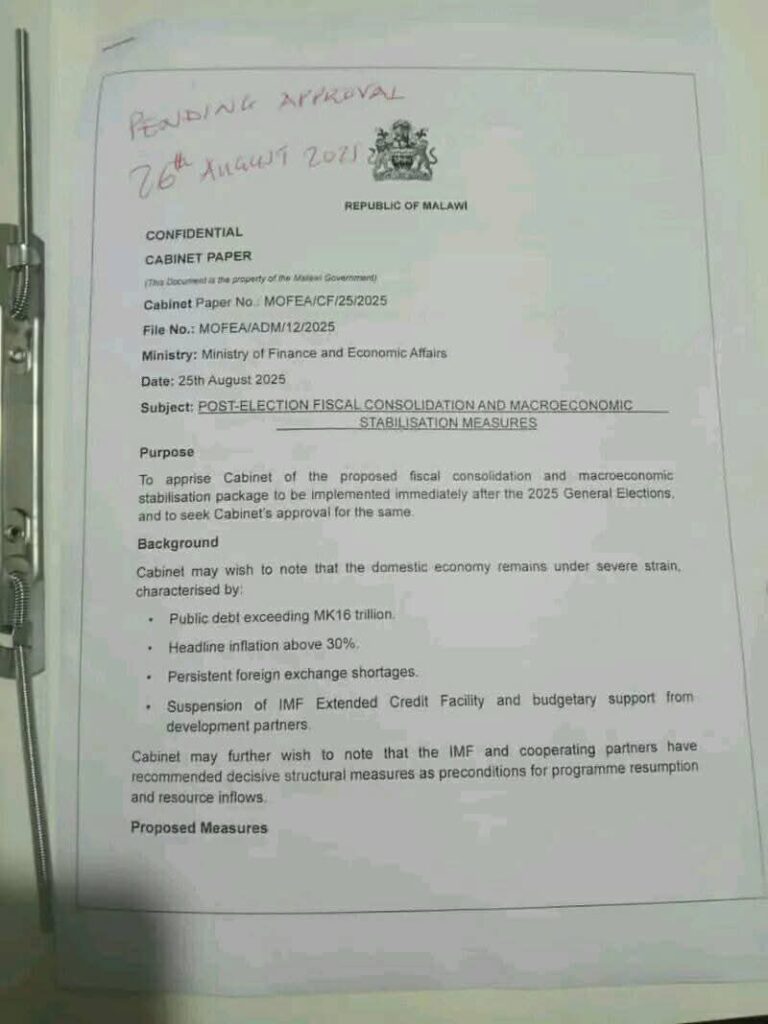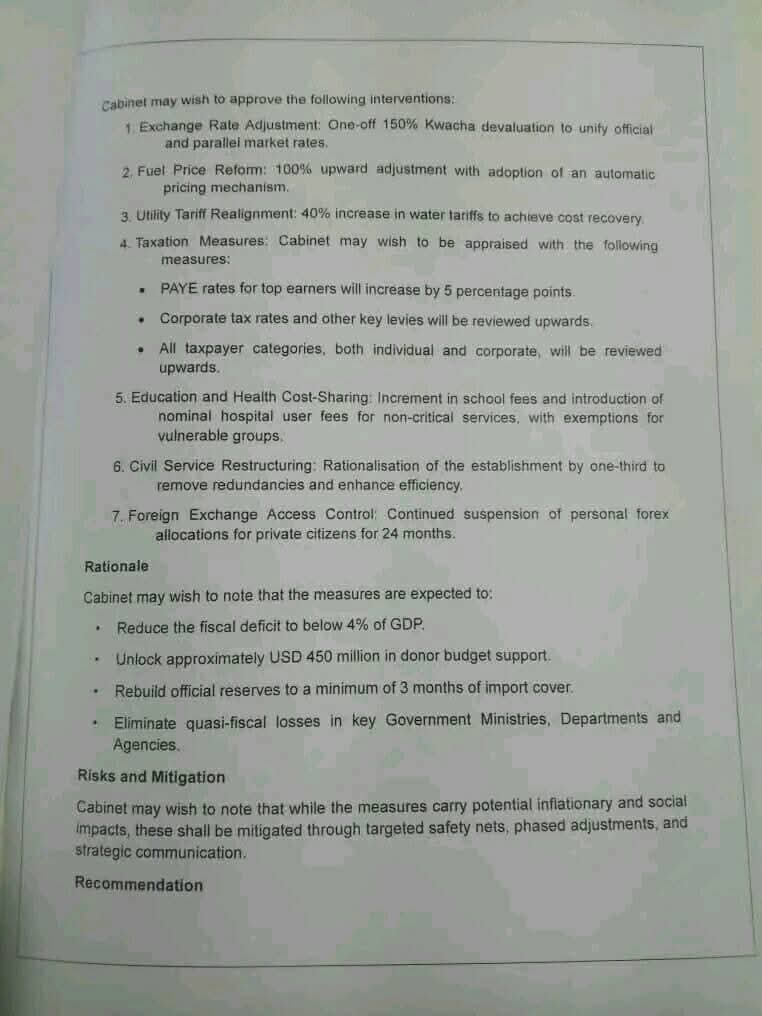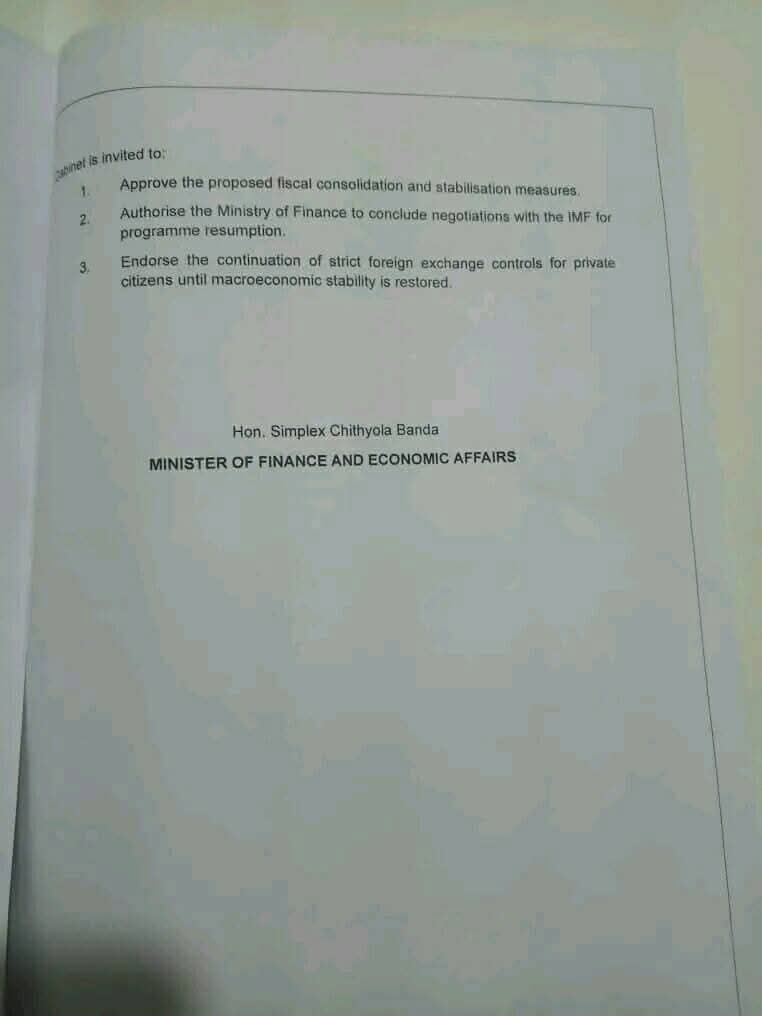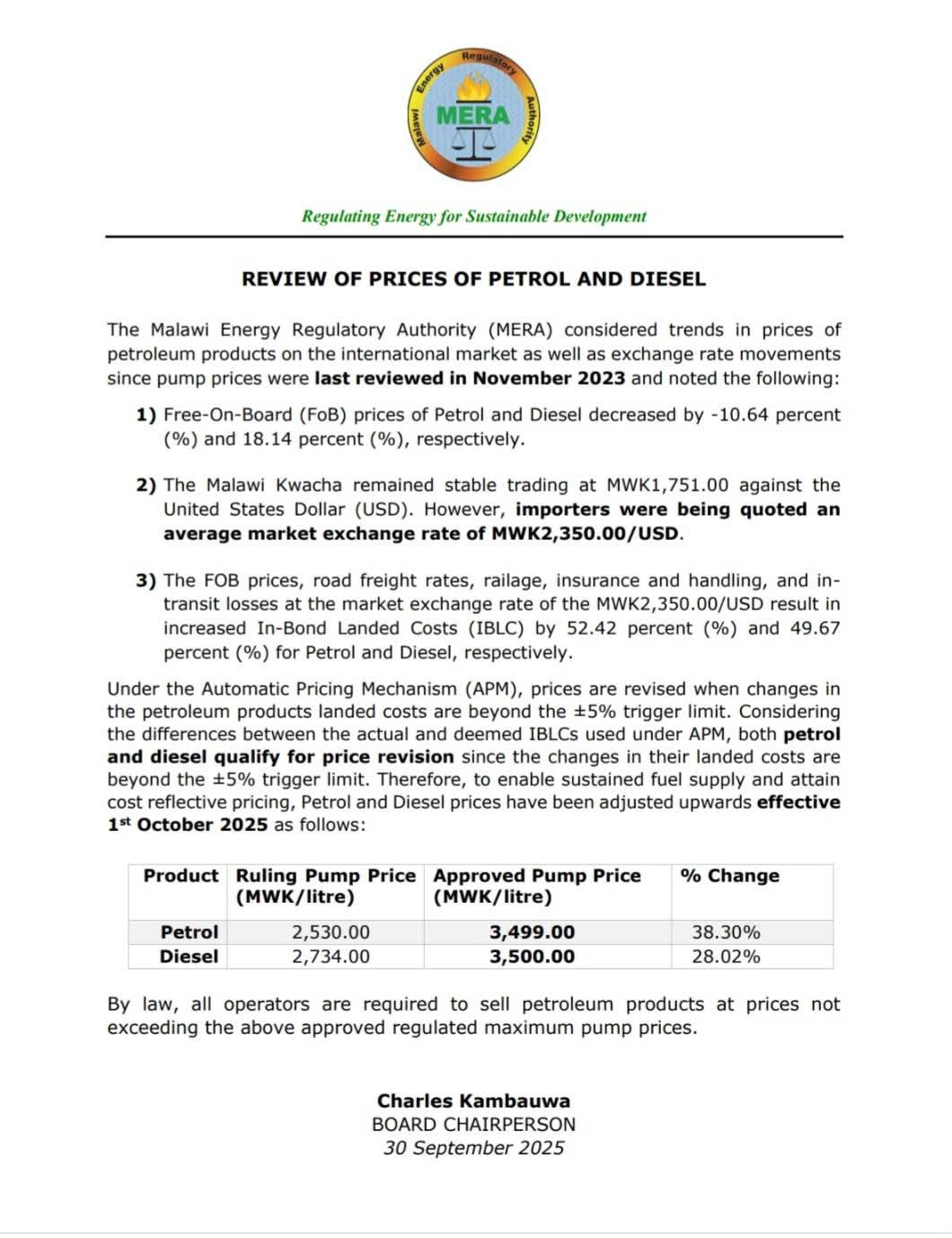By Suleman Chitera
Recent debate around Malawi’s sharp rise in fuel prices has sparked widespread controversy, with some claiming the increase was triggered by the incoming DPP administration. However, evidence reveals that the fuel price hike was approved by the MCP-led cabinet chaired by President Lazarus Chakwera on 24th August 2025, long before the new government steps into office.

Fuel Price Increase Approved by MCP Cabinet
According to reliable documents from the cabinet meeting held at Kamuzu Palace on 24th August 2025, President Lazarus Chakwera and his cabinet resolved to raise fuel prices by 100%. This decision was formally approved and recorded during the meeting.

This means that the sudden rise in fuel costs currently affecting Malawians is not a policy of the DPP government or President-Elect Arthur Peter Mutharika (APM). Instead, the move was deliberately made by the outgoing MCP administration.

MCP Also Approved Kwacha Devaluation
In the same cabinet session, chaired by Chakwera, the MCP government approved a massive 150% devaluation of the Malawian Kwacha. This drastic decision, also on record, has fueled inflationary pressure, further straining households and businesses across the nation.
Public Reaction and Political Accountability
The revelations have sparked anger among Malawians who feel betrayed by the MCP government’s economic policies. Critics argue that these last-minute decisions were designed to shift blame onto the incoming DPP administration while shielding the MCP leadership from accountability.
Many citizens now demand transparency, questioning why the outgoing administration chose to implement such painful policies at the very end of its tenure.
Key Takeaway
The facts are clear:
Fuel prices were increased by MCP, not DPP.
The 150% Kwacha devaluation was approved under Chakwera’s leadership.
As the nation transitions to new leadership under APM, Malawians deserve clarity and honesty regarding economic policies. The record shows that the outgoing MCP government must take full responsibility for the fuel price increase and currency devaluation.




